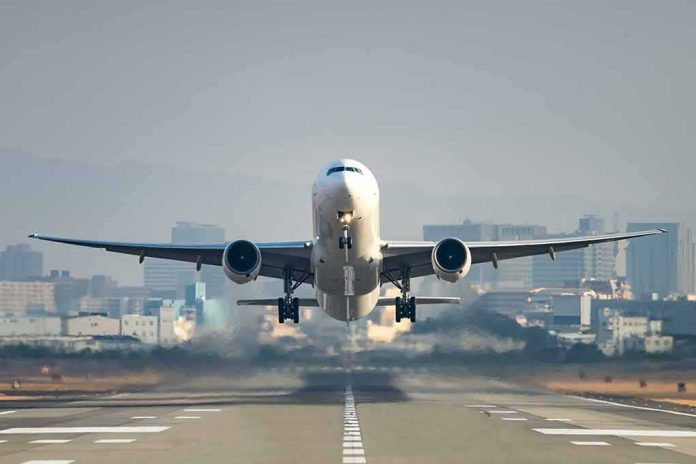
A heroic airline pilot who saved 469 lives during a catastrophic engine explosion now warns that AI automation threatens to make aviation more dangerous by complicating pilots’ ability to handle emergencies.
Story Highlights
- Captain Richard de Crespigny saved all 469 passengers when his A380’s engine exploded, causing 21 system failures
- The hero pilot now warns that increasing AI automation creates more problems for pilots, not fewer
- Critical flight systems failed completely, requiring human judgment to override faulty computer commands
- The incident demonstrates why pilot expertise must remain paramount over automated systems in emergencies
Heroic Pilot Overcomes Catastrophic System Failures
Captain Richard de Crespigny faced every pilot’s nightmare when his Airbus A380 suffered a massive engine explosion just four minutes after takeoff. The blast sent deadly shrapnel tearing through the aircraft, instantly crippling 21 critical systems and severing 650 wires throughout the plane. Despite facing 120 emergency checklists and 50% network failures, de Crespigny’s military training and decades of experience enabled him to safely land the crippled aircraft with all 469 souls aboard surviving.
AI Automation Threatens Pilot Authority in Crisis Situations
De Crespigny’s harrowing experience reveals a troubling trend in modern aviation: the dangerous over-reliance on artificial intelligence and automated systems. The veteran pilot warns that increasing automation presents more problems for pilots rather than solutions, particularly when multiple systems fail simultaneously. During his emergency, de Crespigny had to make split-second decisions about when to trust computer systems versus overriding them with human judgment—decisions that artificial intelligence simply cannot make effectively.
Manufacturing Defects Expose Automation’s Fatal Weakness
The engine explosion originated from a manufacturing defect in a small stub pipe within the Rolls-Royce engine, demonstrating how mechanical failures can cascade into complete system breakdowns. When automated systems failed across the aircraft, only human expertise and decisive leadership prevented a catastrophic loss of life. This incident mirrors other aviation disasters where pilot skill and experience proved superior to computer-controlled responses, highlighting the irreplaceable value of human judgment in crisis management.
Industry Must Prioritize Human Oversight Over Tech Solutions
Aviation experts increasingly recognize the phenomenon of “automation complacency,” where pilots lose critical skills due to over-dependence on AI systems. De Crespigny’s advocacy for balanced automation reflects growing concerns among experienced aviators who understand that technology cannot replace human intuition and decision-making capabilities. The push for greater automation by manufacturers and airlines must be tempered with recognition that skilled pilots remain the ultimate safeguard when mechanical and electronic systems fail catastrophically.
The aviation industry faces a crucial choice between embracing untested AI solutions and maintaining the proven effectiveness of highly trained human pilots. De Crespigny’s miraculous save of 469 lives stands as compelling evidence that experienced pilots with decisive authority remain aviation’s greatest safety asset, particularly when facing the kind of multiple system failures that confound automated responses.
Sources:
Former airline pilot says AI make flying harder not easier – Business Insider
Retired airline pilot saved over 400 lives after engine explosion – AOL











